Loimer Gluegglich Rosé 75 cl.
 I.G. Kamptal, Kamptal, Austria.
I.G. Kamptal, Kamptal, Austria.![]() Pinot Black, Nebbiolo and Zweigelt.
Pinot Black, Nebbiolo and Zweigelt.![]() Rosé wine Bottle, 75 cl.
Rosé wine Bottle, 75 cl.
 EUR, Final price!
EUR, Final price! Receive it
Receive it  March Friday 28 - Tuesday 4
March Friday 28 - Tuesday 4 FREE SHIPPING!
FREE SHIPPING!This product is supplied in quantities of 3 units or more
| Producer | Loimer. |
| Name | Gluegglich Rosé. |
| Variety |
|
| Country of origin |
 Austria. Austria.
|
| Region of origin |
 Kamptal. Kamptal.
|
| Appellation of origin |
 I.G. Kamptal. I.G. Kamptal.
|
| (UE)401/2010 Certification |
Indicación Geográfica (I.G.) Indicación de Procedencia (I.P.) I.G. Kamptal. |
| Weight | 1.500 gr. (1,5 Kg.). |
| EAN | 9120110090553 |
| Typology |
Rosé wine. I.G. Kamptal. |
| Variety |
|
| Format | Bottle. |
| Capacity | 75 cl. |
| Alcohol content | 11% Vol. |
| Weight | 1.500 gr. (1,5 Kg.). |
| Product reference | WAN4529184 |
| EAN | 9120110090553 |
| Actual price | 18,95 € |
| Minimum order quantity | This product is supplied in quantities of 3 units or more |
| Shipping deadline |
 Spain: Free Shipping. Spain: Free Shipping. Delivery term: Information and prices. |
| Storage position | Lateral position, horizontal bottle. |
| Storage temperature |
Store at a constant temperature between 10-17ºC. Humidity should be constant around 60-80%. |
| Recommendations | Keep preferably away from light. |
| Visual tasting note | Strawberry red, Strawberry pink color, Velvety appearance. |
| Olfactory tasting note | Chocolate, Geraniums, Pears, Fruity notes. |
| Tasting note | Structured, Appreciated character, Jams. |
| Recommended pairing | Tortillas, Grilled razor, Light meats, Red fruit desserts. |
| Consumption temperature | 10ºC. |
| Consumption | It is recommended to drink in moderation and demonstrate a responsible consumption of alcoholic beverages. |
| Please keep in mind |
The information provided and referred to the product features and details has been provided by the expert, manufacturer or producer or published on the official sites. In no case can it be considered as assessment made by our team, unless expressly stated otherwise. We suggest you to refer to the comments and reviews posted by our customers and users to expand and contrast this information. |
| Misreading |
Our team provides this information and details in ESPAÑOL language. If you browse in another language note that the information contained may have been translated from the original language through an automated real-time process that has not been supervised by our human team. In case of doubt, misunderstanding or misreading about the content of this information you should refer to the original version of this page or contact our customer service team. |
| Product image |
The product image or its label is only relevant for graphic purposes, so it may not match the identification of the vintage or other features and details of the product for sale. This product is provided in the conditions and format in which it is marketed at the current time. This product is not identified or supplied in a specific vintage. The product image and label may not match the vintage identification or other characteristics and details of the product for sale. |
| Legal Notice |
It is against the law to sell or supply alcohol to, or to obtain alcohol on behalf of a person under the age of 18 years. If you are not more than 18 years old, you must leave this website. |
Selection by «Message in a Bottle®»
Red Wine. Premium Edition MBS Reserva. Customizable label.
3 Reviews of customers and website users. ( During the last 90 days )
Product Selection by Loimer.
24 Products, The best selection by Loimer.
Loimer Gluegglich Rosé 75 cl.
Additional information.

|
«Loimer Gluegglich Rosé Kamptal» is produced by Loimer. In the elaboration of «Loimer Gluegglich Rosé Kamptal» the grape varieties that are used are Pinot Black, Nebbiolo and Zweigelt. «Loimer Gluegglich Rosé Kamptal» is a product from Austria. The production region of «Loimer Gluegglich Rosé Kamptal» is Kamptal. It is certified with I.G. Kamptal. The weight of «Loimer Gluegglich Rosé Kamptal» is 1.500 grams (1,5 Kg.). «Loimer Gluegglich Rosé Kamptal» is identified and marketed with the barcode EAN 9120110090553. |
Variety:
Pinot Black and Nebbiolo.
Loimer Gluegglich Rosé 75 cl.
Variety Pinot Black.
See Pinot Black Rosé wine list.
 Español [ ES ]
Español [ ES ]Origen.
La variedad pinot negro, o más conocida con el nombre en francés pinot noir, pertenece a la familia de las uvas pinot y, aunque no está muy claro el origen de la variedad, se piensa que la pinot noir fue la primera de la familia de las pinot, y una de las primeras variedades obtenidas a partir de viñas silvestres en la parte occidental de Europa Central. A la región del Lago de Constanza llegó alrededor del año 900. En la región de Rheingau comenzó a cultivarse en el siglo XIII. Los perfiles de ADN de la pinot gris y la pinot blanc son idénticos a los de la pinot noir, así que parece claro que se derivan de ella. Sea como sea, las pinot son una familia, y una familia muy querida, entre las que se cuentan otras mutaciones como la pinot meunier o la pinot gouges o musigny. El nombre pinot noir es de origen francés y, probablemente, de las palabras pino (pine) y negro (noir), ya que esta variedad tiene los racimos en forma de cono, como las piñas.
Características.
Las cepas medianamente vigorosas, de porte tumbado, y presentan un desborre y maduración precoces. Desarrollan racimos pequeños, cilíndricos o cónicos, de forma similar a una piña, muy compactos y uniformes, con pedúnculo corto y sin lignificación. Las uvas son pequeñas o medianas y esféricas, tienen una piel oscura, casi negra y azulada, presentando una cicatriz estilar muy marcada y de difícil desprendimiento de su pedúnculo. A pesar de tener un hollejo grueso, es muy sensible al agrietado y a los roces. La pulpa es antociánica, poco o nada pigmentada, blanda y muy jugosa con sabor herbáceo. ES una variedad muy delicada en su cultivo, ya que es muy sensible a las enfermedades fúngicas de la madera a la botritis y al desecado del raspón. Es sensible al mildiu, al oídio y al corrimiento climático, así como a la polilla del racimo, a los cicadélidos y a los ácaros. Se adapta bien a climas templados y a todo tipo de suelos, siempre que tengan buen drenaje, aunque lo ideal sería elegir suelos argilocalcáreos. Es sensible a los fríos primaverales y muy sensible a temperaturas excesivas en verano, ya que se solean sus racimos y pierde muy pronto sus hojas. En climas cálidos madura muy rápidamente y es sensible a las quemaduras solares del fruto. Tiene altas necesidades de magnesio, respondiendo muy bien a los aportes de fósforo y tiene bajos requerimientos en nitrogeno y potasio. La variedad pinot noir recibe también el nombre de Spätburgunder, burgunder, pineau, klevner, plant fin, noirien, pinoz y dorada.
Zonas de cultivo.
La pinot noir es originaria del viñedo de Borgoña, concretamente de la región de Côte-d'Or. También se planta en Italia, España, Alemania, Luxemburgo, Hungría, Kosovo, la Macedonia del Norte, Moldavia, Grecia, Rumanía, Serbia, Eslovenia, Suiza, Bulgaria, República Checa, Eslovaquia, Ucrania, el norte de Croacia, la República de Georgia, Israel, Chile, Argentina, Uruguay, México y Estados Unidos. En Alemania se cultivan unas 11.800 hectáreas de pinot noir, conocida como spätburgunder, lo que representa más del diez por ciento del total de las parras en el país. La mayoría de los viñedos de pinot noir se hallan en Baden (casi 5.900 hectáreas) y en el Palatinado (casi 1.600 hectáreas). Otras regiones importantes de cultivo son Rheinhessen, Wurtemberg, Rheingau y la cuenca del Ahr.
Vinos.
La variedad pinot noir produce mostos con mucho azúcar, siempre que la uva haya tenido una maduración correcta. Estos mostos, de acidez media, recien prensados son incoloros, pero si se mantienen en contacto con los hollejos, rápidamente toman un color primero rosa intenso y posteriormente rojo rubí intenso muy brillante aunque con reflejos marronáceos, por ello pueden dar vinos blancos por sangrado o escurrido rápido y tintos en elaboraciones habituales. Produce un vino de alta calidad apto para crianza, fino, con intensidad y complejo. Es una variedad adecuada para cavas, champagne y vinos de aguja y también para vinos de crianza con cuerpo y vigor, con alta complejidad aromática. El gran rango de buqués, sabores, texturas e impresiones que produce el pinot noir a veces confunde a los que lo prueban. Grosso modo, sus vinos tienden a tener un cuerpo de ligero a medio, con reminiscencias aromáticas a cereza, frambuesa y, en menor medida, grosella, y a otras pequeñas frutas rojas y negras. Tradicionalmente, el tinto de Borgoña de esta variedad es famoso por su sabrosa intensidad, aromas "granjeros" (característica asociada con el tiol y con otros compuestos), pero con el cambio de las modas, las técnicas de vinificación y con clones más modernos y fáciles de cultivar se ha favorecido un vino con más sabores a frutas y con un estilo más limpio.
Rosé wine Pinot Black
Product Selection Rosé wine Pinot Black.
Loimer Gluegglich Rosé 75 cl.
Variety Nebbiolo.
See Nebbiolo Rosé wine list.
 Español [ ES ]
Español [ ES ]Origen.
Hay varias teorías sobre el origen del nombre de esta uva, una sería la palabra nebbia, que significa “niebla”, y hace referencia a la que se postra sobre las colinas de la región del Langhe, en el noroeste de Italia, durante el tiempo de la cosecha. Otra posibilidad sería por el velo lechoso, similar a la niebla, que crece sobre la piel de las uvas cuando alcanzan la madurez y, por último, es posible que derive de la palabra italiana nobile, que significa noble, por la nobleza de esta uva. Desde el punto de vista ampelográfico, el origen de la uva nebbiolo se sitúa en la región italiana de Piamonte, aunque otros autores la ubican en Lombardía. En el siglo I A.C., Plinio el Viejo describió la calidad excepcional del vino producido en Pollenzo, una región localizada al noroeste de lo que ahora es la zona DOCG de Barolo. Aunque Plinio no menciona explícitamente el nombre de la uva de la que se hacía el vino de Pollenzo, la descripción del vino guarda similitudes con las descripciones posteriores de los vinos basados en nebbiolo. La primera mención explícita a la nebbiolo data de 1268 donde se dice que la "nibiol" crecía en Rívoli, cerca de Turín. Posteriormente, en 1303, un productor del distrito de Roero dice tener un barril de "nebiolo”. En el tratado de 1304 titulado Liber Ruralium Commodorum, el jurista italiano Pietro Crescenzi describe el vino hecho de "nubiola" como de excelente calidad. Hay estatutos del siglo XV de la región de La Morra que demuestran la alta estima que se tenía a la nebbiolo, donde se imponían penas, que podían llegar a la amputación de la mano, por cortar viñas de nebbiolo. En el siglo XVIII hay noticias, por primera vez, de uva nebbiolo fuera del Piamonte, cuando los británicos, al no poder disponer de vino de Burdeos debido al conflicto que tenían con los franceses, recurrieron a vinos de esta variedad, aunque las dificultades que encontraban para llevar el vino desde Piamonte a Londres, hicieron que se decantaran por vinos de Oporto y de Jerez. La cantidad de viñedos de nebbiolo continuaron en crecimiento durante el siglo XIX, hasta que la filoxera los diezmó. Después de esto, muchos viticultores decidieron replantar sus terrenos con otras variedades de uva, lo que supuso que la extensión de nebbiolo se redujera, dando como consecuencia que, hoy en día, los viñedos de nebbiolo en Piamonte no alcanzan el 6%.
Características.
Esta cepa es muy caprichosa, por decirlo de alguna forma. Tiende a madurar muy tarde, cuando el clima en la región empieza a ponerse difícil. Es muy susceptible a las plagas y podredumbre. En la bodega es delicada, muy propensa a la oxidación, la cual cambia su color, y puede perder sus aromas frutales. Se debe tener mucho cuidado en su manejo desde el viñedo hasta que llega a la botella, pero cuando todos estos factores convergen en una perfecta armonía, el resultado final puede ser excepcional.
Zonas de cultivo.
La uva nebbiolo no es tan viajera como la merlot o la chardonnay; es decir, no la encontramos por todo el mundo. Fuera de su natal Italia, sólo en alguna parte de California, como por ejemplo en Napa Valley, y en el Valle de Guadalupe, en México, podemos probar cierta cantidad de vinos hechos con esta uva.
Vinos.
Esta variedad es autóctona es utilizada para crear dos excelentes vinos principalmente: el Barolo y el Barbaresco. Ambos son tipos de vinos y denominaciones de origen al mismo tiempo, los cuales pueden ser considerados como los mejores vinos de toda Italia. Los vinos elaborados con la variedad nebbiolo pueden requerir años de envejecimiento para equilibrar el nivel de taninos con otras características. Así, la nebbiolo produce vinos tintos de color claro que pueden contar con mucha cantidad de taninos en su juventud. A medida que el vino envejece, desarrolla matices a piel de naranja en el borde de la copa y madura para revelar otros aromas y sabores, como a violetas, alquitrán, hierbas salvajes, cerezas, grosellas, trufas, tabaco y ciruelas pasas.
Rosé wine Nebbiolo
Product Selection Rosé wine Nebbiolo.
Loimer Gluegglich Rosé 75 cl.

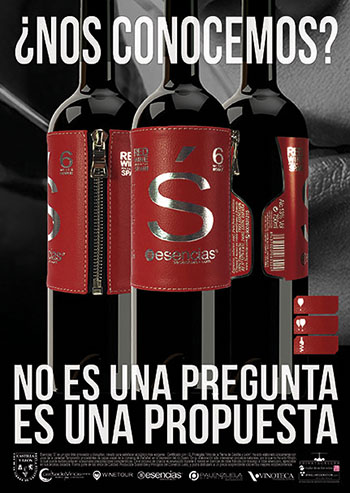
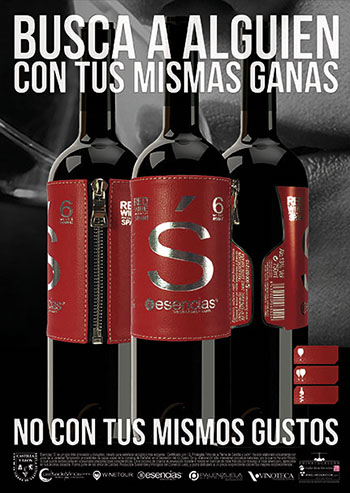
Data sheet.
Loimer Gluegglich Rosé 75 cl.
Rosé wine. Loimer. Gluegglich Rosé. I.G. Kamptal. Kamptal. Austria. Pinot Black, Nebbiolo, Zweigelt. Bottle. 75 cl..
| Variety | |
| Country of origin |  Austria. Austria. |
| Region of origin |  Kamptal. Kamptal. |
| Appellation of origin |  I.G. Kamptal. I.G. Kamptal. |
| Format | Bottle. |
| Capacity | 75 cl. |
| Alcohol content | 11% Vol. |
| Visual tasting note | Strawberry red, Strawberry pink color, Velvety appearance. |
| Olfactory tasting note | Chocolate, Geraniums, Pears, Fruity notes. |
| Tasting note | Structured, Appreciated character, Jams. |
| Recommended pairing | Tortillas, Grilled razor, Light meats, Red fruit desserts. |
| Consumption temperature | 10ºC. |
| Typology | Rosé wine. I.G. Kamptal. |
| Producer | Loimer. |
| Name | Gluegglich Rosé. |
| Weight | 1.500 gr. (1,5 Kg.). |
| EAN | 9120110090553 |
| Comments | 3 Customer reviews. |
| Customers rating | |
| Product reference | WAN4529184 |
| Actual price | 18,95 € |
| Minimum order quantity | This product is supplied in quantities of 3 units or more |
| Shipping deadline |  Spain: Free Shipping. Spain: Free Shipping. Delivery term: Information and prices. |
| Please keep in mind | The information provided and referred to the product features and details has been provided by the expert, manufacturer or producer or published on the official sites. In no case can it be considered as assessment made by our team, unless expressly stated otherwise. We suggest you to refer to the comments and reviews posted by our customers and users to expand and contrast this information. |
| Misreading | Our team provides this information and details in ESPAÑOL language. If you browse in another language note that the information contained may have been translated from the original language through an automated real-time process that has not been supervised by our human team. In case of doubt, misunderstanding or misreading about the content of this information you should refer to the original version of this page or contact our customer service team. |
| Product image | The product image or its label is only relevant for graphic purposes, so it may not match the identification of the vintage or other features and details of the product for sale. This product is provided in the conditions and format in which it is marketed at the current time. This product is not identified or supplied in a specific vintage. The product image and label may not match the vintage identification or other characteristics and details of the product for sale. |
| Country of origin | Spain. This product is shipped from Spain. |
| (UE)401/2010 Certification | Indicación Geográfica (I.G.) Indicación de Procedencia (I.P.) I.G. Kamptal. |
| Storage position | Lateral position, horizontal bottle. |
| Storage temperature | Store at a constant temperature between 10-17ºC. Humidity should be constant around 60-80%. |
| Recommendations | Keep preferably away from light. |
| Accessories | This product is provided in the conditions and format in which it is marketed at the current time. In cases where the product includes an additional packaging, box and/or case, These accessories will be included in the shipment as long as they comply with the dimensions of the special packaging adapted and approved for the transport of beverages. In general, the images of the products that we publish on our website are only relevant for graphic purposes. The images do not show other accessories such as additional packaging (box, case, etc.) or promotional elements that may occasionally be included by the manufacturer along with the product. If you wish, we can inform you about the additional packaging, elements and accessories included with the product at the current time. |
| Legal Notice | It is against the law to sell or supply alcohol to, or to obtain alcohol on behalf of a person under the age of 18 years. If you are not more than 18 years old, you must leave this website. |
| Consumption | It is recommended to drink in moderation and demonstrate a responsible consumption of alcoholic beverages. |
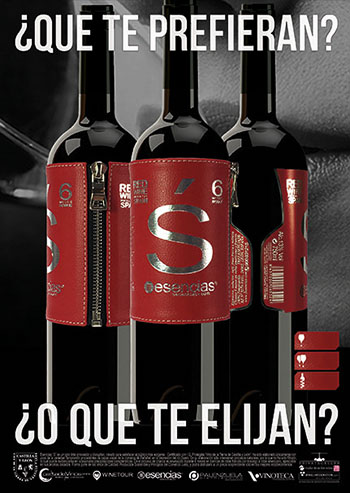
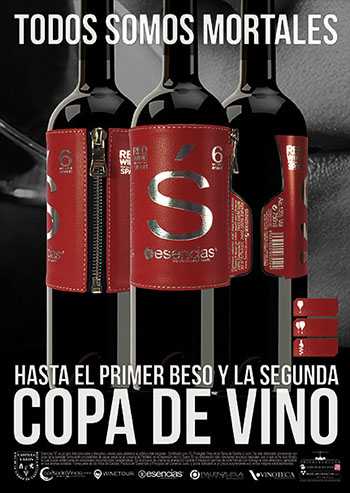
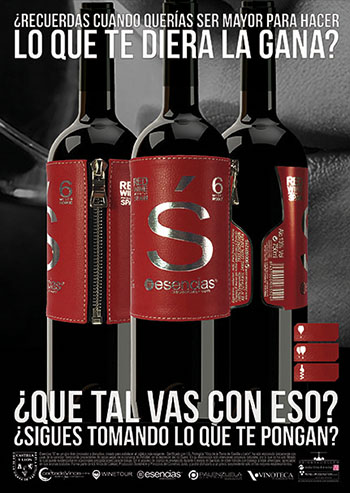
 Italy
Italy France
France Argentina
Argentina United States
United States Australia
Australia Portugal
Portugal Chile
Chile New Zealand
New Zealand South Africa
South Africa



 Germany
Germany



 Tokaj-Hegyalja
Tokaj-Hegyalja





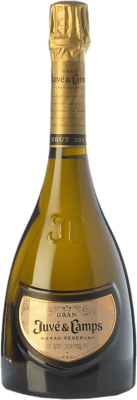
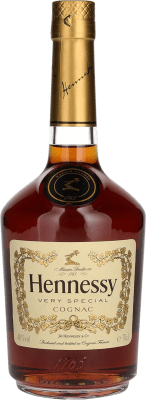

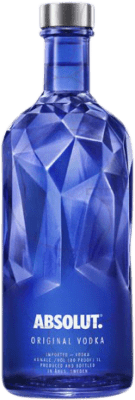






















 Language English
Language English








































Gran hallazgo y encontrado por casualidad
Bello
Te gustará con seguridad y será la próxima moda el año que viene.
Muy interesante en todos los aspectos